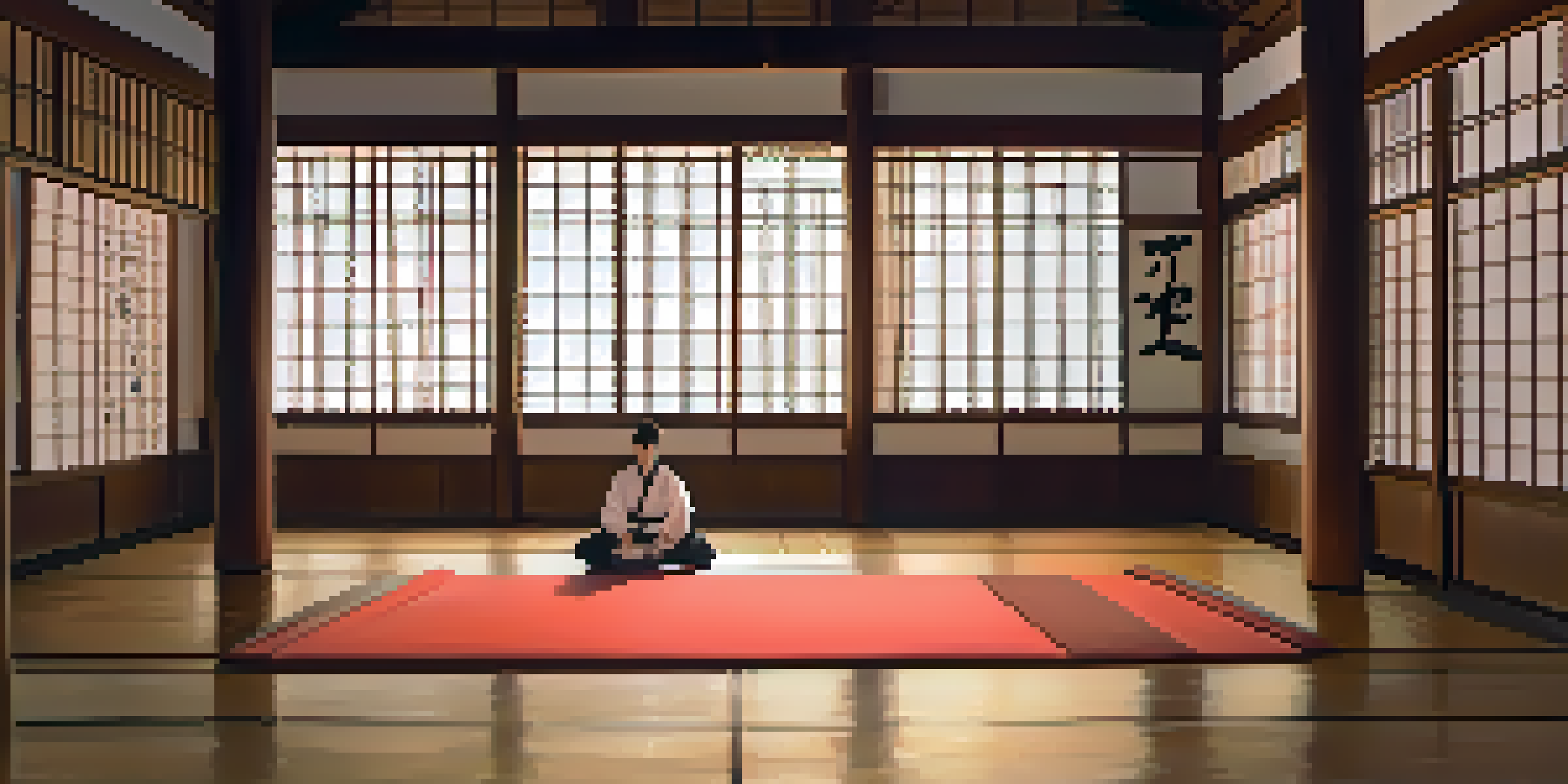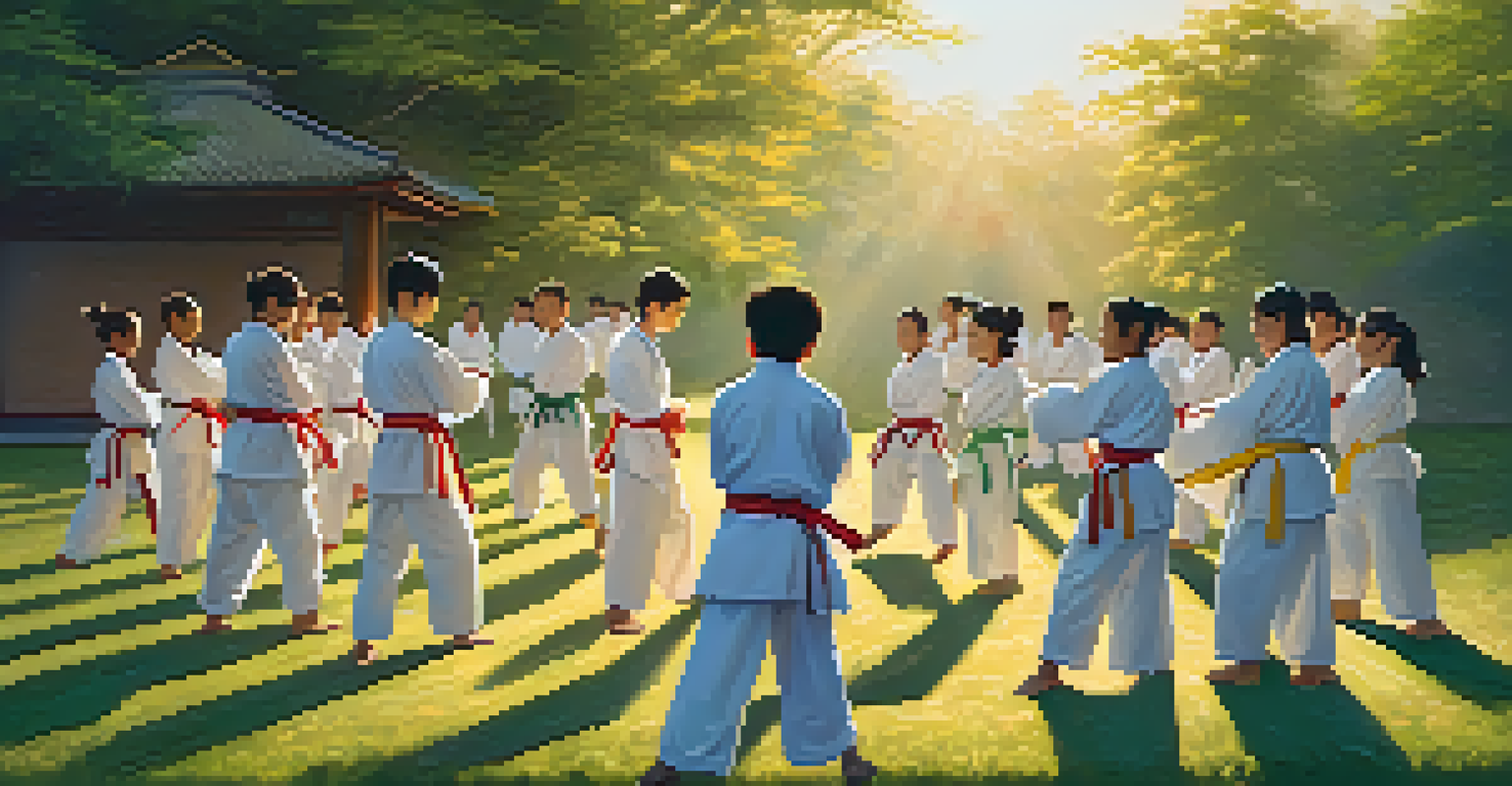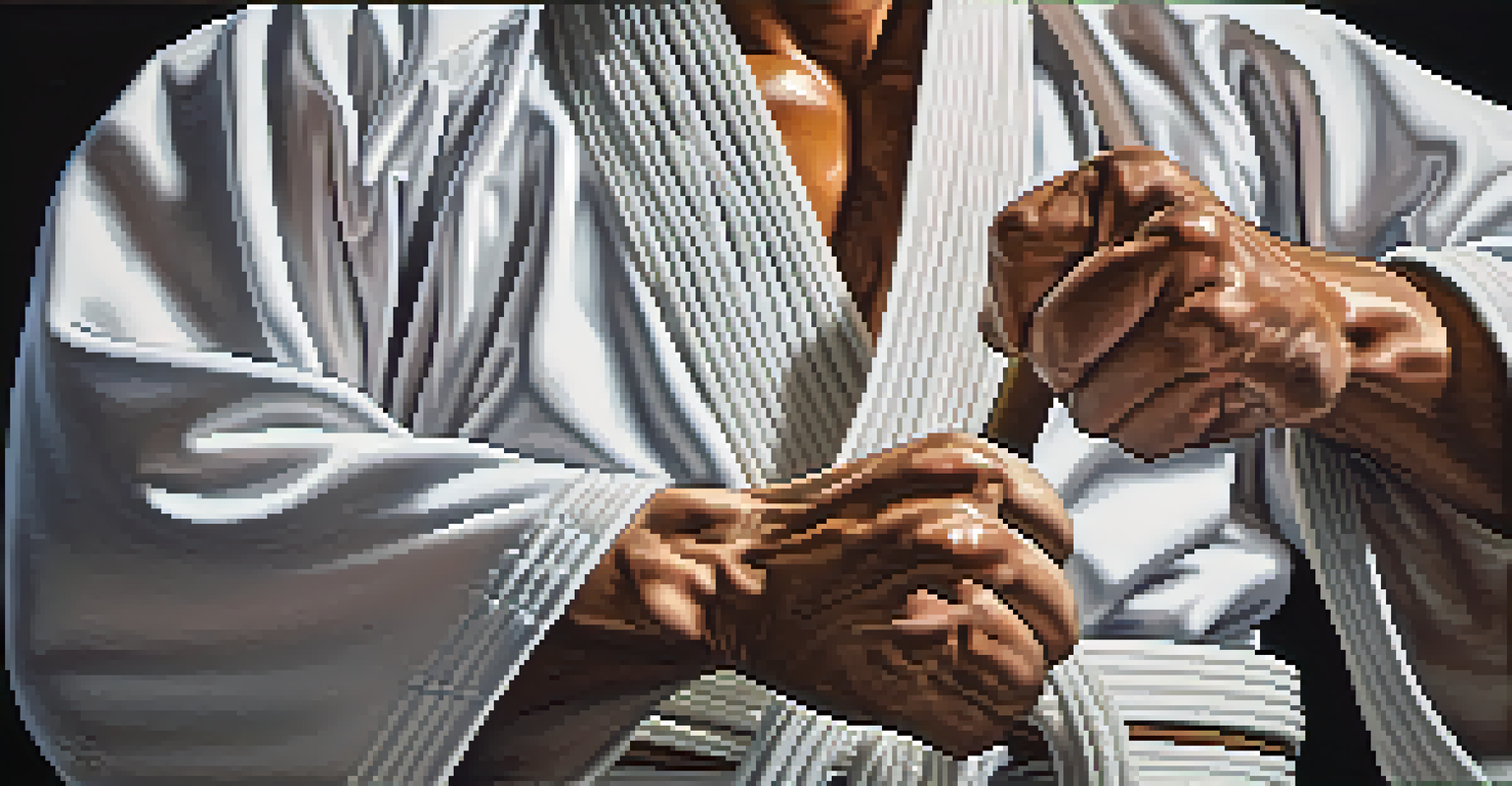The Role of a Sensei: Mentorship in Martial Arts

What is a Sensei and Their Importance in Martial Arts?
A sensei is more than just a teacher; they are a mentor who guides students on their martial arts journey. The term 'sensei' translates to 'one who has gone before,' indicating their experience and knowledge. This role is crucial because it cultivates not just physical skills, but also mental discipline and respect.
A teacher is someone who helps you solve problems you wouldn't have without them.
In martial arts, the relationship between a sensei and a student often mirrors that of a coach and an athlete, where trust and respect are foundational. Through their guidance, students learn to navigate both the physical challenges of martial arts and the personal growth that accompanies them. A good sensei inspires students to push their limits while providing the support needed to succeed.
Ultimately, the presence of a sensei elevates the training experience, transforming it from mere practice into a journey of self-discovery. This mentorship is invaluable, as it shapes not only skilled martial artists but also well-rounded individuals.
The Mentor-Mentee Relationship in Martial Arts
The relationship between a sensei and their students is built on mutual respect and trust. This dynamic is crucial for effective learning, as students must feel comfortable to ask questions and make mistakes. A sensei, through their supportive approach, fosters an environment where students can grow without fear of judgment.

Mentorship in martial arts goes beyond just teaching techniques; it involves imparting values such as discipline, perseverance, and humility. A sensei acts as a role model, demonstrating how to embody these qualities both on and off the mat. When students witness these values in action, they are more likely to adopt them in their own lives.
Senseis Foster Growth and Discipline
A sensei not only teaches techniques but also instills values like discipline and perseverance, shaping well-rounded individuals.
This relationship often evolves over time, with students gaining confidence and competence, while senseis adapt their teaching methods to meet individual needs. As students progress, the bond deepens, creating a lasting influence that extends well beyond the dojo.
Teaching Techniques Used by Senseis
Senseis employ a variety of teaching techniques to cater to different learning styles. Some students may thrive in structured environments, while others may benefit from a more flexible approach. A good sensei recognizes these differences and adapts their methods accordingly, ensuring that all students can absorb the material effectively.
The greatest teacher is not necessarily the one who knows the most, but the one who cares the most.
Common techniques include hands-on demonstrations, verbal instructions, and encouraging peer-to-peer learning. For example, a sensei might demonstrate a technique and then have students practice it in pairs, fostering collaboration and reinforcing learning. This interactive approach not only makes training enjoyable but also enhances retention.
Additionally, senseis often utilize feedback as a key component of their teaching. Constructive criticism helps students understand their strengths and areas for improvement, creating a continuous cycle of growth. This feedback loop is essential in martial arts, where precision and technique are paramount.
The Role of a Sensei in Building Confidence
One of the most significant impacts a sensei has on their students is the development of confidence. Through encouragement and support, a sensei helps students overcome their fears and insecurities, both in martial arts and in life. This boost in confidence can be transformative, allowing students to tackle challenges with a newfound sense of self-assurance.
As students master techniques and achieve their goals, their confidence naturally grows. A sensei plays a pivotal role in this process by celebrating milestones and providing positive reinforcement. This recognition not only motivates students but also reinforces their belief in their own abilities.
Mentorship Builds Lasting Confidence
Through support and encouragement, a sensei helps students develop confidence that extends beyond martial arts into everyday life.
Moreover, the lessons learned in martial arts often extend beyond the dojo. Students leave with an enhanced ability to face various life challenges, whether it's public speaking or pursuing a new opportunity. In essence, a sensei equips their students with the tools to succeed both in and out of martial arts.
Cultural and Philosophical Teachings of a Sensei
Martial arts are steeped in rich cultural traditions, and a sensei serves as a bridge connecting students to these philosophies. They often share stories and teachings that highlight the historical significance of martial arts, instilling a sense of pride in students. This cultural component enriches the training experience, making it more meaningful.
Philosophically, senseis emphasize the importance of respect, humility, and continuous learning. They teach that martial arts is not just about physical prowess but also about cultivating a mindset that values growth and understanding. These lessons encourage students to see martial arts as a lifelong journey rather than a destination.
By instilling these values, a sensei shapes not only skilled martial artists but also individuals who carry these teachings into their daily lives. This holistic approach to training is what sets martial arts apart from many other physical activities.
Challenges Faced by Senseis in Their Role
While the role of a sensei is rewarding, it is not without its challenges. One significant hurdle is managing the diverse needs and expectations of students. Each student comes with their own background, motivations, and learning pace, which can make it difficult to provide a one-size-fits-all approach.
Additionally, senseis often grapple with the balance between discipline and encouragement. They must enforce rules and standards while still fostering a nurturing environment. This delicate balance is essential to maintaining respect and ensuring that students feel supported in their growth.
Cultural Teachings Enhance Training
Senseis connect students to rich martial arts traditions, emphasizing respect and continuous learning as part of their training journey.
Another challenge is staying updated with evolving martial arts techniques and philosophies. A sensei must commit to their own continuous education, whether through seminars, workshops, or practice. This dedication not only benefits their own skills but also enhances their effectiveness as a mentor.
The Lasting Impact of a Sensei on Students
The influence of a sensei can have a profound and lasting impact on a student's life. Many students carry the lessons learned in the dojo well into adulthood, often reflecting on their time with their sensei during pivotal moments. This enduring connection highlights the importance of mentorship in shaping character and resilience.
Moreover, the values instilled by a sensei, such as discipline and respect, often resonate beyond martial arts. Students may find themselves applying these principles in their careers, relationships, and personal challenges. The life skills acquired under a sensei's guidance can lead to greater success and fulfillment.

Ultimately, the legacy of a sensei is not just seen in the martial skills of their students, but in the quality of their character and their approach to life's challenges. This lasting impact underscores the critical role of mentorship in martial arts, making the relationship between a sensei and their students truly special.